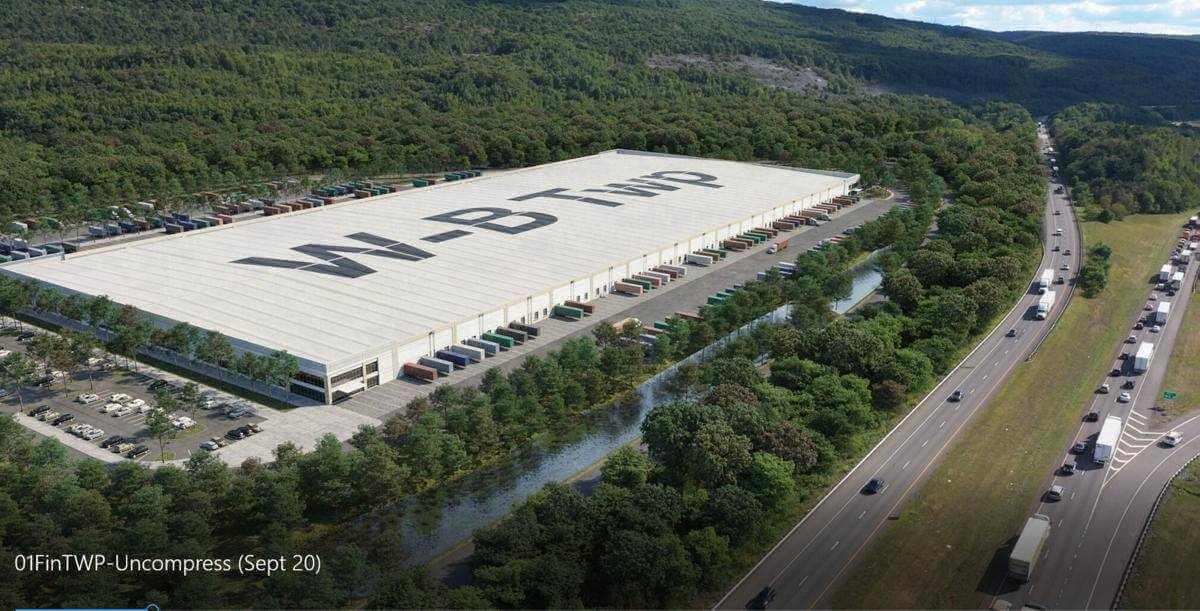
Wilkes-Barre, Luzerne County, PA -
Wilkes-Barre Twp. Council wrongfully denied an application for Bluecup Ventures to build a $50 million distribution center along Interstate 81 that some residents argued would increase traffic and disrupt emergency services, a county judge ruled.
The company, which is seeking to build a 940,000-square-foot facility on mine-scarred land off Johnson Street in the township, saw the council deny permission for the project in a 3-2 vote last November.
Last week, Luzerne County Judge Fred A. Pierantoni III reversed that decision, finding council committed an “error of law” in a legal opinion welcomed by Bluecup’s attorneys.
“Not only did he reverse it, he granted us the relief we wanted,” said attorney Frank Hoegen, of the Wilkes-Barre law firm Hoegen & Associates, PC. “We are able to go ahead and work with planning and zoning to build a warehouse.”
At the time council denied the application, zoning and code enforcement officer Thomas Zedolik cited the “uncertainty of it all” and Wilkes-Barre resident Bob Kadluboski, who joined the appeal as an intervenor, saying state Route 309 is an “emergency road” that is not equipped to handle the more than 1,300 truck and car trips the company estimates the facility would generate each day.
In its appeal, Bluecup argued the proposal was “not more objectionable” than anything else allowed in an M-1 Mining District and that council’s decision was unreasonable and improper.
Council responded that Bluecup lacked legal standing to challenge the decision, in part because it was not registered to do business in the commonwealth when the appeal was filed.
Pierantoni, however, recently rejected those arguments, citing caselaw that he said established the company is a legal entity in Pennsylvania.
The judge also agreed with Bluecup — represented by the Wilkes-Barre law firm Hoegen & Associates — that Wilkes-Barre Twp. Council incorrectly shifted the burden of proving “that the proposed conditional use satisfies the objective standards set forth in the zoning ordinance” to the company, rather than on those opposed to the project.
Council’s legal conclusions in rejecting the application included findings that Bluecup failed to present “adequate testimony” that the warehouse would not adversely affect the health and safety of the public, that the company failed to show the streets and infrastructure are “adequate for emergency services,” and that it failed to “establish that the relationship of the proposed use to other activities existing or planned in the vicinity would be harmonious.”
The judge said the section of the zoning ordinance council cited in its decision “plainly sets forth subjective — rather than objective — standards.”
“The standards by which evidence is measured under the provisions of (the ordinance) are nebulous and qualitative — measured in terms of ‘detriment,’ ‘adequacy,’ ‘disharmony,’ and ‘objectionability,’” Pierantoni wrote. “Without a more exacting or quantitative measure for these standards, this court cannot accept the position set forth by the council.”
The judge further opined that council “plainly (committed) a misapplication of the burden-shifting framework applicable to the underlying application for conditional use.”
As a result, Pierantoni reversed the decision of council, deeming its decision an “error of law,” and approved the conditional use application Bluecup filed in May 2022.
Attorney John P. Rodgers, of the law firm Caverly, Shea, Phillips & Rodgers, said township council intends to discuss the ruling at its meeting Nov. 7 before deciding whether to appeal Pierantoni’s decision to the Commonwealth Court of Pennsylvania.
Hoegen said he hopes the township opts not to appeal Pierantoni’s ruling. The planned warehouse, which will possibly also feature light manufacturing capability, does not yet have a designated tenant but he said the project will be mutually beneficial.
Bluecup’s attorneys have argued that the project would quickly increase property taxes for the site from $1,300 per year to $800,000 annually, and then up to $1.5 million when a 65% tax abatement through the Local Economic Revitalization Tax Assistance program expires in 10 years.
“Hopefully we could sit down and work things out to find a solution that benefits everyone,” Hoegen said. “It’s going to benefit the community. A lot of taxes and job opportunities will be created.”